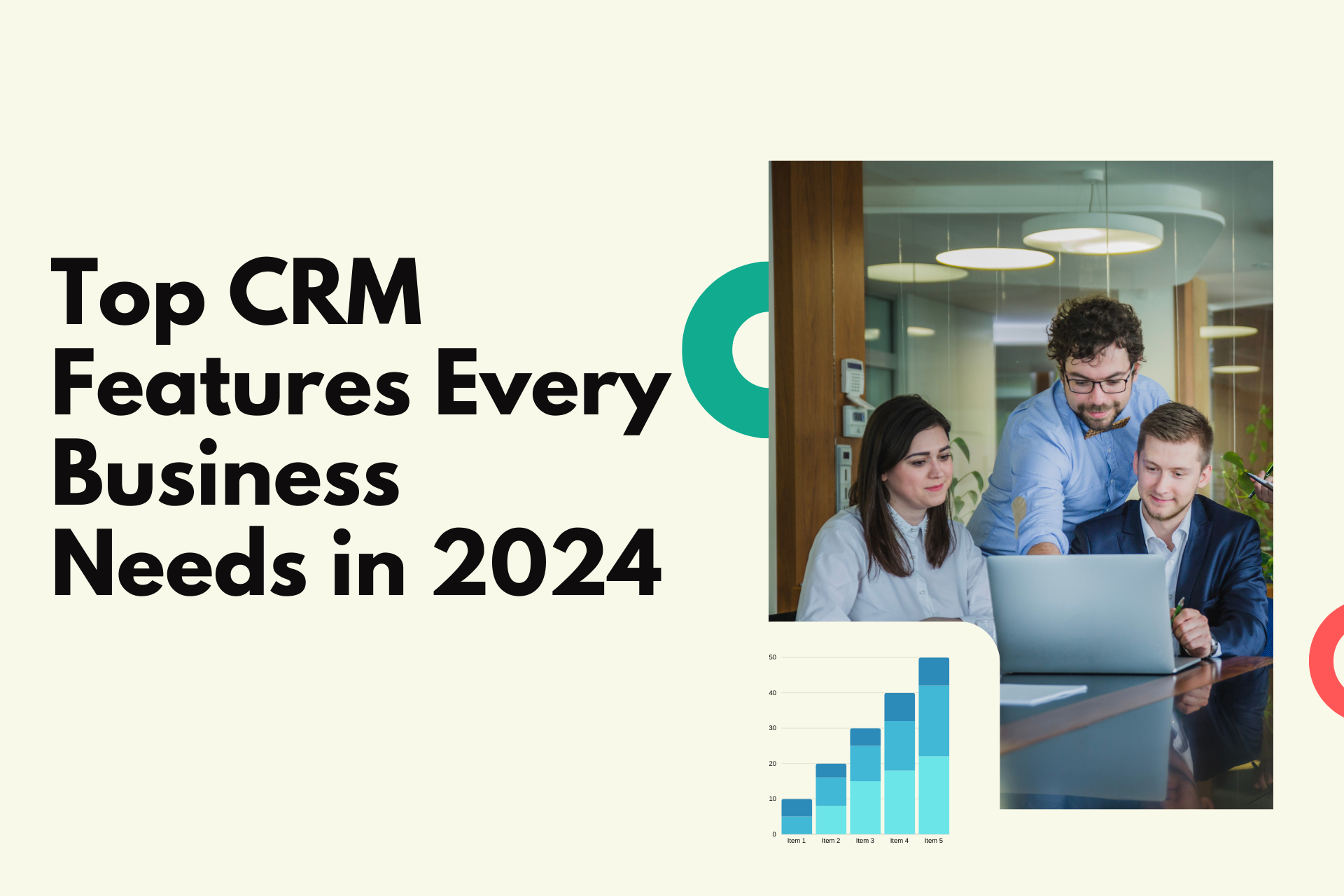Customer Relationship Management (CRM) systems have become indispensable tools for businesses of all sizes, offering a wide range of features to manage customer interactions, streamline processes, and enhance sales and marketing efforts. As technology evolves, so do the capabilities of CRM systems. Here are the top CRM features every business needs in 2024 to stay competitive and improve customer relationships.
1. Unified Customer Data Management
- Comprehensive Customer Profiles: A robust CRM system should consolidate customer information into unified profiles, including contact details, purchase history, communication records, and preferences. This holistic view enables better understanding and personalization.
- Data Integration: Integration with other business systems (like ERP, marketing automation, and e-commerce platforms) ensures data consistency and reduces manual data entry, improving accuracy and efficiency.
2. Advanced Analytics and Reporting
- Customizable Dashboards: Modern CRMs offer customizable dashboards that provide real-time insights into key metrics such as sales performance, customer behavior, and campaign effectiveness.
- Predictive Analytics: Leveraging AI and machine learning, predictive analytics can forecast sales trends, customer churn, and opportunities for upselling or cross-selling, helping businesses make data-driven decisions.
3. Sales Automation Tools
- Lead Management: Effective CRM systems offer lead scoring, tracking, and nurturing features, helping sales teams prioritize high-potential leads and manage the sales pipeline more efficiently.
- Automated Workflows: Automating repetitive tasks like follow-up emails, reminders, and data entry frees up time for sales professionals to focus on building relationships and closing deals.
4. Marketing Automation Integration
- Segmentation and Targeting: CRMs with integrated marketing automation allow businesses to segment their audience based on various criteria, such as demographics, behavior, and purchase history, enabling targeted and personalized marketing campaigns.
- Campaign Tracking: Tracking the effectiveness of marketing campaigns in real-time, including email opens, click-through rates, and conversions, helps refine strategies and optimize return on investment (ROI).
5. Customer Service and Support Management
- Helpdesk and Ticketing System: A built-in ticketing system helps manage customer inquiries, complaints, and support requests efficiently, ensuring timely resolution and improving customer satisfaction.
- Self-Service Portals: Self-service features, such as knowledge bases, FAQs, and community forums, empower customers to find answers and solutions independently, reducing the load on support teams. Good project management software will help you collaborate effectively and ensure that your projects are successful.
6. Mobile Accessibility
- Mobile CRM Apps: In an increasingly mobile world, CRM systems must offer robust mobile applications, allowing sales and support teams to access customer data, update records, and communicate with clients on the go.
- Offline Access: The ability to access CRM data offline ensures that team members can continue working without interruptions, even in areas with limited internet connectivity.
7. Customization and Scalability
- Custom Fields and Modules: Businesses have unique needs, and a flexible CRM should allow for customization, including the addition of custom fields, modules, and workflows tailored to specific processes and requirements.
- Scalability: As businesses grow, their CRM needs will evolve. Scalable CRM solutions can accommodate increased data volume, users, and advanced features without compromising performance.
8. Enhanced Security and Compliance
- Data Security Measures: In an era of increasing cybersecurity threats, CRM systems must offer robust security features, including encryption, multi-factor authentication, and role-based access controls.
- Regulatory Compliance: Compliance with regulations such as GDPR and CCPA is crucial. CRM systems should include tools to manage customer consent, data access requests, and data deletion in accordance with these laws.
Conclusion: Choosing the Right CRM for Your Business
- Aligning with Business Goals: The right CRM system should align with your business goals, whether it’s improving sales efficiency, enhancing customer service, or optimizing marketing efforts.
- Future-Proofing Your CRM Investment: As technology and customer expectations evolve, choosing a CRM that offers continuous updates, support, and integration capabilities ensures that your system remains relevant and effective in the long term.
By prioritizing these essential features, businesses can select a CRM system that not only meets their current needs but also supports future growth and success.
|












